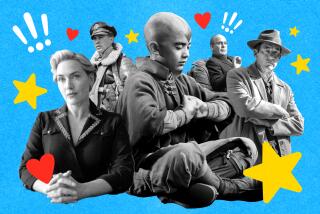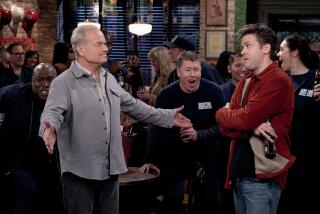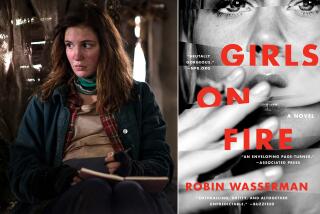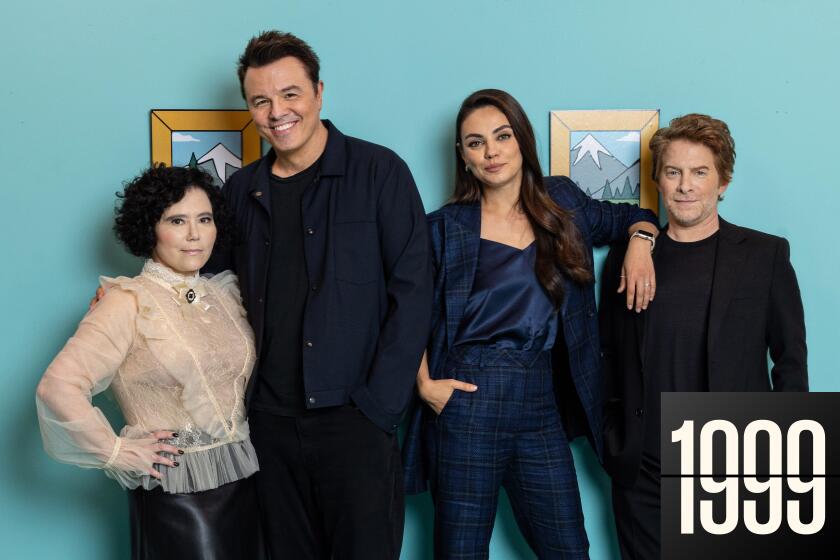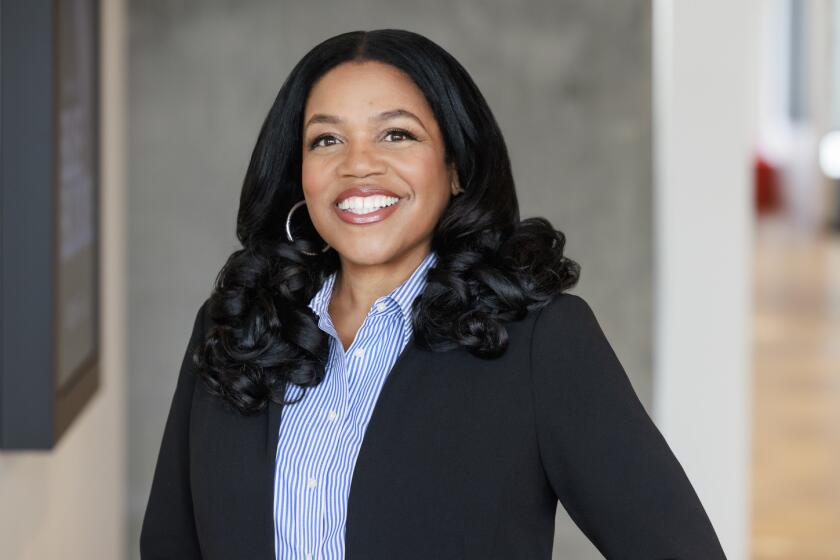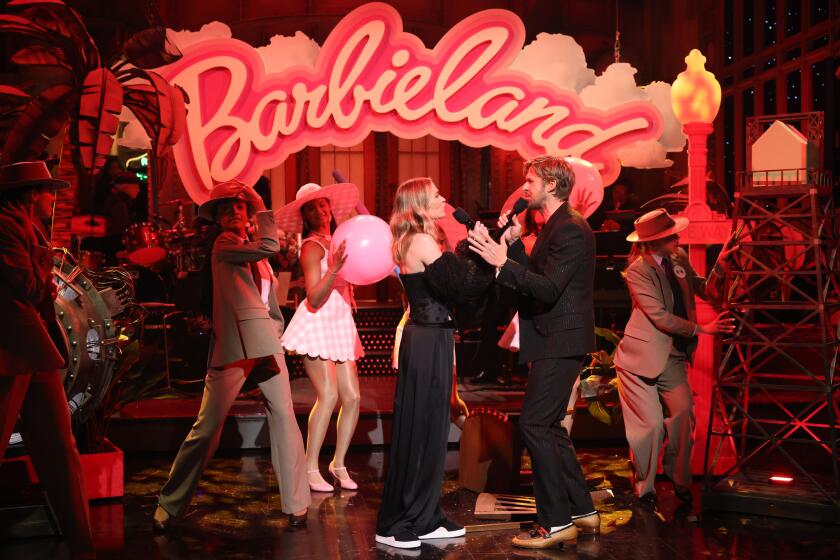TV Picks: Archival rom-coms, a teen caper, films about equality
“Wonderfalls” (20th Century Fox DVD); “Bent” (Hulu). It will always be the case, and more often than not, that good television series are canceled before their time (and, as seems increasingly important in a serial world, their conclusion). Still, as we do with the real people of Earth, we can celebrate the life even as we mourn the death. Here are two shows cruelly cut down in their prime that nevertheless managed to tell what feel like complete stories, and both of which are still available for you to see. In stolen moments over the last couple of weeks I rewatched, in its 13-episode entirety, “Wonderfalls,” a sweetly cynical 2004 romantic fantasy whose creative team included Todd Holland, Bryan Fuller and Tim Minear, a television Tinker-to-Evers-to-Chance. It starred Caroline Dhavernas (now on Fuller’s “Hannibal) as a Brown philosophy graduate working in a Niagara Falls gift shop and disinclined to cooperate with life, who begins to receive cryptic messages, through animal-shaped inanimate objects -- a wax lion, a brass monkey, lawn flamingos, a mounted fish, and so on -- that impel her reluctantly to helpful action. There are a love object, a best friend (Tracie Thoms, of whom we should see more) and a comically difficult family (including mother Diana Scarwid, sister Katie Finneran and brother Lee Pace, who was in Fuller’s also sadly abbreviated “Pushing Daisies”). Like the screwball comedies of old, it does not come to an end so much as to an agreement, a brief moment of rest, from which the characters will carry on without us.
INTERACTIVE: Fall 2013 TV preview
That is true also of Tad Quill’s “Bent,” an exceptionally well-reviewed and indifferently supported NBC comedy that grabbed a host of old rom-com cliches and improbably worked them into something believable and fresh and, probably the fatal point, not quite like anything else on television. (It was only last year that its six episodes aired, and yet it seems so long ago, somehow.) David Walton, who has practically held the patent on charming, semi-responsible child-men, or man-boys, or whatever they’re called, did that thing, but he does it better than anyone else around. Amanda Peet was his opposite number, an uptight divorced lawyer with child, Ralph Bellamy-issue boyfriend (Matt Letscher), opposite-of-uptight sister (Margo Harshman) and a house, which Walton’s surfer-slacker-recovering-gambling-addict contractor is slowly remodeling. Obviously … well, obviously. Jeffrey Tambor plays Walton’s father-roommate (an actor), J.B. Smoove, Jesse Plemons and Pavel Lychnikoff his motley construction crew. Quill and his cast played an old-fashioned tune perfectly; the last scene of the final episode (not counting the unconnected tag) is as effective a series end as I’ve ever seen, whether it was meant to be or not, and almost nothing happens in it.
“Swindle” (Nickelodeon, Saturday). All-star teenage caper film features faces familiar from Nick sitcoms (Nitcoms -- feel free to use that, world). When a couple of clueless kids are done out of a valuable Honus Wagner baseball card by a less than scrupulous memorabilia dealer -- his name is Swindell, to make a point -- they concoct one complicated plan, then another, to get it back, retro-’60s style. (What does it say about this younger generation that they don’t know the value of a Honus Wagner baseball card? Shakes head sadly.) A team is assembled (the Muscle, the Hacker, et al.), and away we go. It’s no “Topkapi,” and all quite impossible, as in “Mission”, but the film is well-assembled and bouncy and if you are looking for a sprightly couple of hours of television where you don’t have to explain a sexual reference to a child, or have one explained to you, this is your baby. Otherwise, the best reason to watch is Jennette McCurdy (as The Actress, here with “Sam & Cat” costar Ariana Grande, as The Gymnast); McCurdy, who played the best-pal part on “iCarly,” has something of the knockabout spirit of the old Warner Bros. lot, back when Joan Blondell (they are the same height, research shows) was snapping her gum and putting dopes in their place. She is just about too old for this stuff, but fit for the next stuff. There is a food fight.
“Branded” (ESPN, Tuesday); “The March” (PBS, Tuesday); “5 Broken Cameras” (PBS, Monday). Three documentaries about equality. “Branded,” by Heidi Ewing and Rachel Grady (“Jesus Camp,” “Detropia”), is the final film in ESPN’s “Nine for IX” series about women in sport; it takes a step back from specific stories to consider the evolving fortunes of the female athlete -- from Billie Jean King, Chrissie Evert and Mary Lou Retton in the late 20th century to Danica Patrick, Gabrielle Reese and Lolo Jones in the 21st -- in the world Title IX made possible. (They are “midway up the mountain,” says Retton, though that may be optimistic: We are informed that in 2009 “ESPN SportsCenter” devoted just 1.4% of its airtime to women’s sports.) Its main point, among others, is that to women in sport have also been required to be not merely talented but also good-looking, the stuff of male dreams (“feminine” at first, sex bombs subsequently), and to be products as well as players. (They are better rewarded for the first pursuit than for the second, and never as well as men: Brandi Chastain, one speaker recalls, was offered hundreds of thousands of dollars for the sports bra she famously exposed after the deciding kick in the 1999 Women’s Soccer World Cup: “She didn’t make that in the history of her professional soccer career.”) But it also tracks the changing attitudes of the players themselves. Says Reece, who shot a spread for Playboy with her own photographer on her own aesthetic and financial terms, “People get very nervous and upset when women go, ‘Oh, exploiting’s what we’re doing? Then I’ll do it myself.’”
“The March,” directed by John Akomfrah and narrated by Denzel Washington, arrives on the eve of the 50th anniversary of the March on Washington -- where Martin Luther King Jr. delivered his “I Have a Dream Speech,” if that wasn’t immediately in your mind, which it should have been. The Civil Rights movement has been the subject of as many documentary films as anything in American history -- more than, possibly -- but the March itself, which gathered 250,000 people before the Lincoln Memorial for a day of speeches and song and, just as important, showing up, tends to appear within those films fully blown and peopled. “The March” tells the story of how it came to be and who put it together, and drops you into the time when, far from being a landmark day in history, it was merely a great idea, with a chance of not coming off at all. (Rarely seen color footage brings it all closer.) Many participants, on the steps and in the crowd, share their memories of the day -- as does Oprah, who only watched on TV, but felt the change.
The Oscar-nominated Palestinian-Israeli-French co-production “5 Broken Cameras” makes its way to the PBS series “POV” this week. Fashioned by Palestinian “peasant” Emad Burnat and Israeli filmmaker Guy Davidi from home video footage shot on a succession of cameras, serially destroyed in encounters with the Israeli army in the last half of the first decade of this century, it centers on the arrival of an Israeli settlement next to his village at the edge of the Occupied Territories and a fence that closes the villagers off from their olive trees. Its matter is the stuff of big novels, and the nonfiction movie Burnat and Davidi have made, though it records a political grievance, is poetic at its heart -- a look at ordinary life in a place most Americans will picture imperfectly, and a story of Burnat’s friends and of his family. He begins shooting with the birth of his fourth son -- “The first days the bulldozers come are very hard, yet those are also very happy days for me” -- and keeps shooting. (He becomes the village recorder.) His wife would very much like that he put his camera down. He won’t, and so it is also a story about an obsession, and, given the situation, a dangerous one. And yet, he continues, for the order the frame gives, and the distance the images allow. A picture about survival, then, of different kinds.
[Updated 10:53 p.m. Aug. 22: An earlier version of this story cut short a quote about a kick by Brandi Chastain. The quote that begins “She didn’t” is, in full: “She didn’t make that in the history of her professional soccer career.”]
ALSO:
Join a live chat with ‘Homeland’s’ Morena Baccarin on Friday
Join a live chat with ‘American Horror Story’s’ Jessica Lange on Friday
Andy Samberg and Malin Akerman are among panelists for PaleyFestPreviews
More to Read
The complete guide to home viewing
Get Screen Gab for everything about the TV shows and streaming movies everyone’s talking about.
You may occasionally receive promotional content from the Los Angeles Times.
